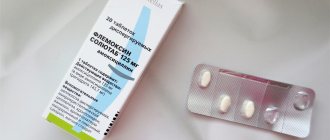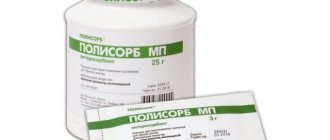When not to vaccinate
The flu vaccine is well tolerated due to its natural effects on the body. Sometimes there is redness and swelling at the injection site. In case of severe allergy to chicken protein, immunization with anti-influenza drugs is prohibited.
The flu vaccine is contraindicated for a nursing mother with anaphylaxis to any ingredient in the medication or a previous dose of inactivated virus vaccine. Acute moderate or severe illness is a contraindication for immunization. Mild acute illness (diarrhea or upper respiratory tract infection) is a temporary no-no.
Specifics of the course of the disease
During breastfeeding, women are most susceptible to various colds and viral diseases. This is explained by the fact that milk production requires a lot of oxygen, and this puts excessive strain on the respiratory system.
It should be remembered that influenza during lactation is not an indication for interrupting breastfeeding.
Women's milk contributes to the development of the child's immunity, since it contains many immunological defense factors. The mother's immunoglobulins are passed on to the baby, thereby developing immunity to various infections.
The incubation period of influenza ranges from several hours to three days. From the moment of infection until the appearance of the first symptoms, the mother continues to feed her child, but she is already a source of infection. The baby receives the virus through her milk, but at the same time he also received antibodies that help him fight the influenza virus.
Nursing mothers should know that it is not worth isolating their child during illness. Also, boiling milk is not required, since under the influence of high temperatures it loses its beneficial and nutritional properties. As a result, the child will not receive any vitamins, microelements, or immunoglobulins.
Doctors say that if you wean a child from the breast during a period when the mother is sick with the flu, then his immunity decreases, his body will no longer be able to properly fight infections in the future.
In some cases, abdominal pain appears and stool changes. The temperature can last for several days and is difficult to bring down with antipyretic drugs.
Flu during lactation requires special treatment. Many medications are incompatible with breastfeeding. Therefore, medications must be prescribed by a doctor. To relieve fever, Paracetamol is usually prescribed in strictly defined doses. Decoctions of medicinal herbs, tea, and gargles will help relieve a sore throat. To eliminate cough, it is better to inhale herbal decoctions. You can rinse your nose with a salt solution.
When breastfeeding, you should not take medications in large doses. This does not contribute to a speedy recovery. High concentrations of drugs in milk are dangerous for the baby.
Video on the topic
How to treat a nursing mother - Doctor Komarovsky
Inter TV channel.
I don’t want to get sick at all, but now we think about acute respiratory infections more and more often. It does not bypass the most defenseless babies and their mothers. Dr. Komarovsky knows how to treat them...
Treatment during breastfeeding: What can be done and how can I find out?
On the video channel “Mother days”.
The season of rains and viruses is coming, summer is almost over. We will discuss colds and their treatment for nursing mothers in this video! Be healthy!
What medications can you take while breastfeeding?
Lyudmila Sharova - Lessons for mothers. Video about the compatibility of drugs with breastfeeding. How to choose medications and visit doctors.
Publication source:
Flu season traditionally occurs in the fall and winter. This is a severe acute infectious disease caused by special viruses. It is often confused with ordinary
ARVI and acute respiratory infections
, but in reality it proceeds completely differently. This is a much more dangerous disease than a common cold.
Features of vaccination
The vaccine against the virus is produced by private manufacturers, production takes about 6 months. Availability of the drug depends on when production is completed, with deliveries to healthcare facilities often beginning in August. Doctors and nurses are encouraged to start vaccinating people as soon as the drug becomes available.
It takes 2 weeks after immunization against the virus for antibodies to be produced in the body and provide protection against the virus. Immunization must be done by the end of October, before the start of the disease season. Breastfeeding mothers can be vaccinated against influenza after consulting with their doctor at the beginning of the vaccination period.
If a woman is under 50 years old, you can choose the spray vaccination method, which is used in clinics. For those breastfeeding, flu shots can be given using a jet injector, a high-pressure stream of liquid that penetrates the skin instead of a needle.
To summarize: is it possible and necessary to get a flu vaccine for nursing mothers?
Complications from the flu pose a huge threat to human life. When a nursing mother becomes ill, the baby is at risk of infection. Therefore, it is important for women to get flu vaccinations in a timely manner to protect both themselves and their baby.
Is it possible to get a flu vaccine for a nursing mother? Yes, if she is healthy and no contraindications were identified during the examination by the therapist. Here it is worth remembering about inactivated vaccines, which do not lead to the development of serious adverse reactions.
How often should you get vaccinated? Vaccination allows protection for 6-8 months. Therefore, it is recommended to be vaccinated once a year, in early autumn before the outbreak of the epidemic.
And, of course, it is worth remembering about prevention. Maintaining personal hygiene, proper nutrition, and an active lifestyle help strengthen the immune system. This means that it becomes more resistant to any virus.
Features of vaccination of pregnant women
In most cases, vaccination is carried out in a clinic. But if desired, vaccination can be given in other institutions where there is a special room and permission to carry out vaccination.
The flu vaccine contains proteins to which the immune system produces antibodies. This takes two to three weeks, after which we can say with confidence that the person is protected from the disease for six to eight months. Pregnant women are a special group for which almost all drugs used to treat influenza and vaccinations are prohibited, since their consequences for the health of the unborn baby are unknown.
Many vaccine instructions state that you can get a flu shot during pregnancy, but only if the benefit outweighs the possible harm. The difficulty is that the drugs are not tested on pregnant women.
You can get a flu shot during pregnancy, but you should only choose a high-quality inactivated vaccine.
Vaccination is carried out in the second or third trimester of pregnancy. Usually, vaccinations are given in October and November, but if this period falls during the first trimester, then it is necessary to assess the possible risks for both the mother and the unborn child.
Features of vaccination
Today, clinics have a wide selection of flu vaccines that nursing mothers can give. Naturally, only a qualified doctor can help in choosing. When choosing, he must find out whether the patient is allergic to chicken protein and other components of the composition.
The most common vaccine options include:
- Live vaccines containing a weakened influenza virus - Live allantoic influenza vaccine.” This is a Russian-made drug. It can be used by nursing mothers and children over 3 years of age. It is quite effective, as it contains 3 strains of the virus at once.

Live cold vaccines
- Felnovirion vaccines – Grippovac. This is also a Russian drug. But it should not be used by mothers who are allergic to chicken protein.

Cold vaccine Grippovac - Split vaccines "Vaxigrip" (France), "Begrivac" (Germany), "Fluarix" (England). Their composition does not imply the presence of chicken protein, which makes it possible to vaccinate even those mothers who are allergic to the presented component.
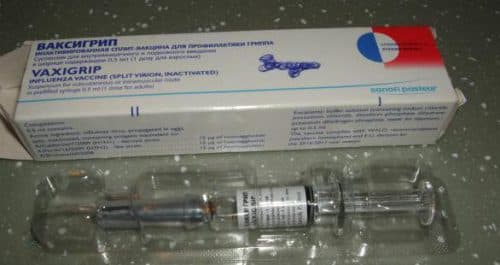
Flu vaccine Vaxigripp - Subunit drugs are Influvac (Holland), influenza vaccine Grippol and influenza vaccine Grippol Plus (Russia).
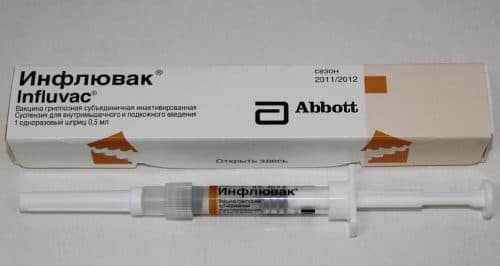
Flu vaccine Influvac
But what folk remedies against flu and colds should be used, and what are the best, this article will help you understand.
How flu is prevented with Amiksin, and how to use it correctly, is described in great detail in this article.
Breastfeeding is not a reason not to carry out the necessary vaccinations. The recommendation to get flu vaccinations while breastfeeding, between September and December, is considered an effective precaution. Doctors recommend the aerosol method for people susceptible to pathogens as an alternative that is allowed for a nursing mother.
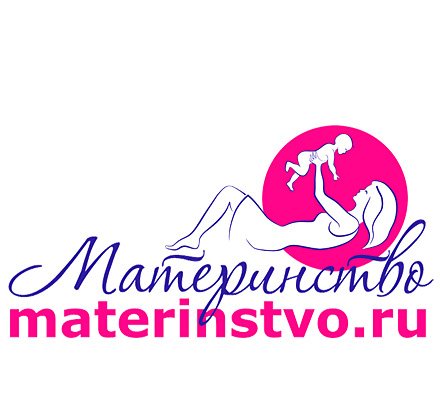
For most patients, the disease causes fever, body aches and other cold-like symptoms. An anti-virus injection helps prepare you to defend against that virus in case it tries to enter your body. The immunobiological preparation contains a small amount of virus.
Women susceptible to infections due to a chronic disease should be vaccinated regardless of the period. Vaccination not only benefits the mother, but gives the child full protection after birth. Antibodies are passed from mother to child through milk. Since the immunization is not approved for children younger than 6 months, the shot will help protect newborns from possible maternal infections.
To protect yourself from the disease, you need to get vaccinated every year. Unlike chickenpox and rubella, the influenza virus is constantly changing. The medicine is produced in accordance with WHO standards; every year, doctors and scientists prepare a vaccine from a mixture of the most likely pathogens. A nursing mother can be vaccinated against influenza; it is a certified means of protection.
We invite you to read: Mixed feeding: principles and rules
Mothers pass protective antibodies to their children during breastfeeding for various infectious diseases, including influenza.
Antibodies are a vital defense against infection. An acute infectious disease is dangerous for newborns; to protect the child, a nursing mother can be given an injectable vaccine.
Vaccination for hepatitis B is safe; most people have a positive reaction to the drug. After a medical procedure, pain may occur. Some patients experience nausea, decreased appetite, or cold symptoms. But these problems are not like a viral disease. The side effect of the production of protective antibodies in the body disappears within 5-7 days.
The reaction of the body of the mother and child during breastfeeding to an injection from a seasonal disease depends on several factors:
- To what extent do the strains of microorganisms in the drug correspond to the strains in the bloodstream?
- Presence of diseases of the nervous system.
- Diseases of the endocrine system.
- Hypertension.
- Anemia.
- Polyneuritis.
- Skin diseases.
The components used in the low-quality, cheap vaccine do not match the viruses circulating during the disease season. Injections with uncertified medications will be less effective. Research shows that it is possible to give a breastfeeding mother a flu vaccine. Subunit and split vaccines are easier to tolerate and do not cause negative consequences in the child.
The World Health Organization says that a flu shot is essential if you are planning a pregnancy. At this time, the body should be maximally protected from various viruses and infections.
Flu during pregnancy affects the formation of the fetus and can cause miscarriage.
Breastfeeding women can and even need to get a flu vaccine. After the birth of a child, the body weakens and becomes susceptible to infectious diseases. In addition, the flu is very dangerous due to its complications.
Due to the periodic occurrence of influenza, the list of recommended vaccines is updated annually. Vaccination is not mandatory. It has been carried out since 2008, after the influenza virus caused millions of deaths around the world.
According to scientists, influenza affects people who have a weak immune system. The World Health Organization is developing vaccines. One of the most used vaccines is Pentaxim.
The vaccines that have been created do not protect against all types of influenza. Their action is directed against seasonal species, as well as the most common varieties of the virus: H3N2, H1N1, H3N2.
Before an epidemic begins, scientists study conditions to try to predict which influenza virus epidemic to expect. The person himself decides whether to agree to vaccination.
The lack of mandatory vaccination is due to the fact that vaccination causes the risk of allergic reactions in the body. There is no medicine that can kill the influenza virus.
Available medications for nursing mothers are aimed at combating symptoms and germs. The human immune system fights the virus. Therefore, the effect of the vaccine is concentrated on strengthening it, and not against the flu.
To prepare for the vaccine, you need to get tested.
There is a list of indications for which doctors strongly recommend vaccination:
- the presence of chronic diseases of the respiratory system;
- the presence of chronic diseases of the cardiovascular system;
- the presence of chronic liver and kidney diseases;
- diabetes detection;
- reduced immune system.
Inactivated flu shots are used.
Vaccination is also recommended for healthy people who are at risk of contracting the flu. The list of such people includes: pregnant women, elderly people, people whose activities are based on communication with the public.

Doctors decide how and when the vaccination is given after the person gives his consent.
The list of possible consequences that occur after vaccination includes:
- inflammation of the skin at the site where the injection was given;
- the occurrence of skin itching and rash;
- enlarged lymph nodes;
- the appearance of dizziness;
- decreased temperature of the extremities and worsening sleep.
Most people affected by side effects are children. More serious consequences were also recorded, characterized by: seizures, heart attacks, partial hearing loss. The breastfeeding mother should consider these cases before making a decision.
Of course, ARVI can hardly be considered a rarity in the modern world. And it will probably be difficult to find a person who has never had the flu. Fever, weakness, cough, runny nose - the symptoms are extremely unpleasant. Moreover, the disease disrupts a person’s usual daily routine.
Nobody wants to get sick. And modern pharmaceutical companies offer customers a lot of vaccines and drugs that can prevent influenza diseases. The flu vaccine “Grippol Plus” is considered quite effective. But what is this remedy? Are there any contraindications to taking it? Are there any possible side effects? Should you agree to get vaccinated? The answers to these questions interest many people.
The Grippol Plus vaccine is available in the form of a solution for intramuscular or subcutaneous administration. A single dose is 0.5 ml of solution, which is placed in glass ampoules or bottles with a rubber cap and an aluminum cap. Some companies produce the vaccine in convenient, sterile syringes that are ready for use.
Naturally, first of all, people are interested in questions about what this product is and what properties it has. The drug "Grippol Plus" is a highly effective, purified anti-influenza vaccine that provides immunity to influenza A and B viruses.
One dose of the drug contains hemagglutinin from current strains of the influenza virus, in particular various subtypes of the influenza virus A and B. In addition, the drug contains the immunoadjuvant polyoxidonium in phosphate-buffered saline.
According to research, the Grippol Plus flu vaccine ensures rapid formation of immunity. As a rule, in 75-96% of patients, antibody titers to the influenza virus are determined in the blood 8-12 days after the procedure. Immunity lasts up to 12 months.
By the way, polyoxidonium, which is a component of the drug, has immunomodulatory properties. This substance stimulates a nonspecific immune response and increases the human body’s resistance not only to the influenza virus, but also to other infections.
In what cases is vaccination carried out using the drug “Grippol Plus”? The instructions indicate that vaccinations are permitted for almost all age categories of patients, including children over 6 months.
In addition, it is worth highlighting several groups of people who are particularly prone to this viral disease. Vaccination is recommended for people who, due to their profession, are susceptible to such infections, in particular medical workers, military personnel, workers in transport, trade, police, social services and educational institutions.
What is best to use for this?
Specific prevention against influenza is carried out with vaccines, divided into:
- Live, which includes weakened and non-infectious viruses.
- Inactivated, the composition of which does not contain a live virus.
The latter, in turn, were divided into three groups:
- Whole cell , which contain the entire influenza virus cell. These include inactivated liquid influenza vaccine, Russia.
- Split or split vaccines , which contain a split, that is, destroyed, cell of the influenza virus.
They contain both surface and internal proteins and antigens. Due to the high degree of purification, they do not contain viral lipids and chicken embryo proteins. These include: Grippol vaccine (Russia), Fluarix vaccine (Belgium), Begrivak vaccine (Germany), Vaxigrip vaccine (France). - Subunit vaccines - contain only surface viral proteins (hemagglutinin and neuraminidase). These include: the Grippol Plus vaccine (Russia), the Influvac vaccine (former Solvay Pharma, the Netherlands), Agrippal vaccine (former Chiron Co, Italy).
The following influenza vaccines are certified and available in Russia:
- Influenza vaccine allantoic live dry, “Microgen”, Russia.
- Inactivated liquid influenza vaccine, Russia.
- Grippol, Russia.
- Fluarix, Belgium.
- Grippol plus, Russia.
- Influvac, Netherlands.
- Agrippal, Italy.
After the administration of whole-cell and live vaccines, post-vaccination reactions are observed, especially in children. Accordingly, such vaccines are used very rarely. But it is worth noting that they are able to form a good immune response against the flu. Split and subunit ones do not so often cause complications during administration , and at the same time form excellent immunity. Therefore, at the moment they are the standard for use for prevention purposes.
Important! The best flu vaccine is the golden mean, which is the split vaccine. It has a minimum of adverse reactions and is able to form a good immune response to the influenza virus.
Scientists are currently actively developing a new whole-cell vaccine, which, along with its predecessors, will have a more effective ability to form immunity against influenza and will be devoid of such numerous complications and reactions after administration.
Contraindications
Flu vaccination is contraindicated for a nursing mother due to health problems. In this case, contraindications can be temporary or permanent.
Temporary contraindications include diseases that occur in acute and aggravated forms. If the woman’s condition improves, then the vaccine can be administered. But constant contraindications are urticaria, allergies, Quincke's edema, anaphylactic shock.
A nursing mother should understand that vaccination will be safe and effective only if the following conditions are met:
- The composition of the vaccine has been fully studied.
- The patients were isolated.
- The maximum number of the population has been vaccinated.
- There is no contact with affected people.
After receiving the flu vaccine, nursing mothers may experience the following reactions:
- Allergic reaction to chicken protein. This reaction is considered the most common.
- Killed vaccines may cause a local reaction. As a result, the patient experiences pain and redness.
- Temperature rise. But it should only increase by no more than half a degree. My throat also hurts. These symptoms are very similar to a viral infection. But after a few days the condition returns to normal.
If the vaccine was incorrectly diluted, then an inflammatory process develops or the administered composition does not produce the desired result. If the vaccine is stored incorrectly, the desired effect will be absent or a local reaction will occur.
The flu shot is contraindicated if you have certain health problems. Contraindications can be temporary or permanent:
- Temporary contraindications are acute and aggravated forms of diseases. When the condition improves, vaccination is acceptable.
- Permanent contraindications are anaphylactic shock, urticaria, allergy to chicken protein, angioedema.
We invite you to read: Should children be vaccinated, opinions of experts with all the pros and cons of vaccination
It should be remembered that the flu vaccine is reliable and safe if the following conditions are met:
- All details about the composition of the vaccine are known.
- Isolation of patients.
- Maximum vaccination coverage of the population.
- Avoiding contact with sick people.
Reactions to the flu vaccine:
- The most common reaction is an allergy to chicken protein or another component of the vaccine.
- Inactivated (killed) vaccines can cause a local reaction (pain and redness appear at the injection site).
- Sometimes the temperature may rise (but not more than half a degree), and the throat may turn red. It feels like an acute viral infection, but after a couple of days everything goes back to normal.
After vaccination, some problems may arise if the doctor did not administer the vaccination correctly. If the injection was not sterile, inflammation at the injection site, sepsis, toxic shock, and even death may occur. If the vaccine is diluted incorrectly, inflammation may develop, or the vaccine may not have the desired effect. If the vaccine was not stored correctly, it will not produce the desired result, or a local reaction will occur.
Popular antiviral drugs
Viferon suppositories during pregnancy - a description of the drug and the principle of action is described here.
It is better to prevent the flu than to treat its consequences later. Treatment of colds during breastfeeding is best prevented by preventive measures. Therefore, a woman should limit contact with sick people and time spent in crowded places. She needs to strengthen her immunity with vitamins and healthy foods, and maintain personal hygiene. It is recommended to carry out wet cleaning in the apartment as often as possible and ventilate all rooms.
And of course, don’t forget that you should always lead a healthy lifestyle. Adequate sleep, limiting stress, active pastime, walks in the fresh air, and the absence of bad habits help maintain health and strengthen the immune system.
It must be remembered that even if a woman gets sick with the flu while breastfeeding, she should not wean her baby off the breast. By feeding on mother's milk at this time, the baby develops its own immunity.
The influenza vaccine should not be given if a person has a cold. If the patient is allergic to chicken protein, vaccination is not carried out, since it contains elements of chicken embryos.
The list of contraindications also includes:
- drug intolerance;
- presence of problems with the functioning of the nervous system;
- the presence of pathologies of the respiratory system;
- asthma disease;
- anemia.
The vaccine is not given to a person who experienced unpleasant side effects after a previous vaccination. Some people have elevated body temperature - this is also a contraindication for vaccination.
Children are vaccinated from six months of age. There are no clear rules whether a child should be fed before vaccination or not.
- Increase in body temperature to thirty-nine degrees or more.
- Aches in muscles and joints.
- Headache.
- Stinging in the eyes.
- A sore throat.
- Dry cough.
- Runny nose.
The best medicines for a runny nose are presented here.
Flu during lactation requires special treatment. Many medications are incompatible with breastfeeding. Therefore, medications must be prescribed by a doctor.
To relieve fever, Paracetamol is usually prescribed in strictly defined doses. Decoctions of medicinal herbs, tea, and gargles will help relieve a sore throat.
When breastfeeding, you should not take medications in large doses. This does not contribute to a speedy recovery. High concentrations of drugs in milk are dangerous for the baby. Find out how to treat tickling and dry cough in this material.
conclusions
It is better to prevent the flu than to treat its consequences later. Treatment during breastfeeding is best prevented by preventive measures.
Therefore, a woman should limit contact with sick people and time spent in crowded places. She needs to strengthen her immunity with vitamins and healthy foods, and maintain personal hygiene.
It is recommended to carry out wet cleaning in the apartment as often as possible and ventilate all rooms.
Flu prevention
To reduce the risk of disease for yourself and your baby, you must adhere to a set of preventive actions. Their goal is to prevent the virus from entering the body.
The recommendations are simple and will not cause any difficulties:
- hygiene must be maintained;
- avoid public places during the epidemic;
- take walks along the street, but in uncrowded places;
- use wipes and sprays for disinfection;
- keep your home clean.
If one of your family members is sick, you should limit contact with him. Boiling water kills viruses on dishes better than detergent. There are immunostimulants on the market that can improve human health. They will help if young parents do not know whether a nursing mother can be vaccinated against the new influenza virus.
It is necessary to get vaccinated against a viral infection to avoid getting sick, but there are additional methods of prevention:
- Prevention with probiotics. Probiotics directly interact with, strengthen and activate the immune system. If the flora is disturbed or the intestinal mucosa is damaged, the functioning of the immune system is reduced. Fermented foods such as homemade yogurt or kefir contain mature probiotic strains of bacteria that prevent attack by pathogens.
- Additional additives. Vitamin D reduces susceptibility to infection.
- Antiviral teas. There are many medicinal plants that have medicinal effects. Red echinacea in combination with linden during breastfeeding is effective in boosting immunity.
- Use alcohol-based disinfectants if soap and water are not available.
- Ventilation of the room and wet cleaning.
Limiting contact with sick people and walking in crowded places during periods of high incidence will prevent infection of the mother and child.
Should a nursing mother get a flu vaccine?
Flu is one of the most common diseases. Every year new types of influenza emerge, claiming thousands of lives. To combat the virus for preventive purposes, vaccination has been developed, the purpose of which is to prevent the onset of the disease in humans.
Vaccination has a strong effect on the human body, allowing him not to get sick during an epidemic. In this regard, young parents often ask whether a nursing mother can be vaccinated against flu or not.
All types of influenza are divided into three categories: A, B, and C. Each category includes many varieties. According to doctors, they themselves are not sure that they know about all existing types of this disease. The disease is caused by a viral infection.
The virus has a complex structure, which makes its treatment more difficult. If you get the flu, you should consult a doctor as soon as possible.
The presence of this disease can be determined by a number of signs:
- general intoxication of the body;
- damage to the respiratory system.
The first sign is characterized by:
- the appearance of chills;
- increased temperature;
- the occurrence of fever;
- pain in the head and dizziness;
- sensitivity to light.
A complex of additional symptoms is also identified. A sick person feels weak, begins to sweat, suffers from pain in the back and muscles, and discomfort in the joints.
When you get the flu, the temperature rises to 39-40 degrees.
Respiratory tract damage is accompanied by:
- sore throat;
- runny nose;
- cough and difficulty breathing.
If you don't see a doctor promptly, the flu can lead to serious complications. Complications can be caused directly by the influenza virus, or by microbes.
The most dangerous complications are:
- pulmonary edema;
- swelling of the ligaments;
- swelling or inflammation of the brain.
Less dangerous complications are expressed in the activation of chronic diseases such as radiculitis or arrhythmia.
If not treated in a timely manner, one type of flu can develop into another. In this case, a completely different treatment method will be required.
We suggest you read: Acetone in the urine of a child, causes, signs, treatment
Can a nursing mother get a flu shot?
Seasonal influenza is a disease characterized by severe course and dangerous consequences. It is accompanied not only by classic respiratory symptoms, but also by a sharp increase in temperature, headache, lacrimation, aching muscles and joints. Sometimes they are accompanied by dyspeptic symptoms - nausea, vomiting, diarrhea. Symptomatic drug therapy often does not bring results. And given the fact that during the breastfeeding months there are numerous restrictions on medications, influenza poses a serious threat to women.
According to WHO recommendations, a nursing mother can be given a flu vaccine. This will help reduce the likelihood of infection, reduce the intensity of symptoms if infection occurs, and eliminate the development of complications. The components of a high-quality vaccine do not penetrate into milk, which means they are not harmful to the child. Before administering the vaccine, it is mandatory to visit a physician to check for contraindications.

Flu shot while breastfeeding
It doesn’t help at all, it can only cause complications.
“He’ll grow up, then we’ll do it.” This is mistake. Firstly, the baby’s immune system is ready to respond by developing immunity to the introduction of a particular vaccine (the administered doses of the vaccine and the timing of vaccination optimally correspond to the state of the immune system). Secondly, protection against infections is most relevant.
If a seasonal flu epidemic is coming, young parents are advised to take care of disease prevention. If infection has occurred, the primary task for the mother is to select safe treatment methods.
Some medical specialists are inclined to believe that it is necessary to temporarily interrupt lactation until the nursing woman fully recovers. The reason for this is the high probability of infection of a newborn from a sick mother. The need to suspend lactation can be debated, since by the time the first symptoms of the disease appear, the child manages to receive a dose of the virus from the mother.
During this period, breast milk is more important than ever, since it contains valuable antibodies that provide support in the fight against infectious pathogens.
If a woman could not avoid catching the flu, it is recommended to continue breastfeeding.
To reduce the likelihood of infection of a newborn baby, a woman must wear a gauze or cellulose bandage before each feeding.
The danger of influenza lies in its consequences, therefore, if a characteristic clinical picture appears, a nursing mother should consult a medical specialist for advice.
Features of treatment
The approach to the treatment of influenza during breastfeeding should be thoughtful and balanced. Most medications are not recommended for use by nursing and pregnant women.
As antiviral therapy, nursing mothers are allowed to use so-called interferon inducers (Grippferon, Viferon).
These drugs can be taken not only for the purpose of treatment, but also for prevention in the midst of an epidemic of the disease.
To facilitate nasal breathing, it is not recommended to use vasoconstrictor drops and sprays. To treat a runny nose, it is necessary to use rinsing and irrigation of the nasal cavity with saline solutions. If nasal congestion interferes with normal functioning, then vasoconstrictor drops are best used before bedtime, for no longer than 3 days in a row.
Treatment methods
If the disease is not severe, then a nursing woman is recommended to use traditional medicine methods that do not affect the child’s body through breast milk. During lactation, a woman can use the following treatment methods:
- Taking Aflubin. From the moment the first symptoms of the disease appear, care must be taken to stimulate the body's defenses. The natural drug Aflubin stimulates the production of antibodies to pathogens of viral and bacterial diseases.
- Tea with the addition of natural honey and lemon. This product contains a loading dose of vitamin C, which helps improve immunity. Eating lemon and honey is permissible only in the absence of allergies, both in mother and child.
- Tea with viburnum, currant and raspberry jam. These berries contain natural antibiotics and antiviral active ingredients. You can drink the jam with tea or add it to a drink.
- Milk with honey and butter added. This remedy effectively combats sore throat and dry cough. Milk is recommended to be consumed warm before bed.
- For symptomatic treatment of influenza during lactation, you can warm your feet in warm water with the addition of mustard powder. For dry cough, inhalations from decoctions of medicinal herbs are useful. You can carry out inhalations and warm your feet in warm water only after your body temperature has normalized.
- If a young mother is bothered by a sore throat, then she is recommended to gargle with the addition of sea salt and soda. To prepare the solution, you need to dissolve 0.5 tsp. salt and ¼ tsp. baking soda in 300 ml of boiled warm water. As an alternative, you can use decoctions of medicinal plants (calendula and chamomile flowers). The frequency of rinsing is 3-4 times a day. Eucalyptus essential oil (2-3 drops), which has bactericidal properties, can be added to rinsing solutions.
- You can reduce a high fever without using antipyretics by wiping your body with plain water. It is recommended to take water at room temperature, avoiding hypothermia. After this, you should put a cold compress on the forehead area.
Flu during breastfeeding requires a special approach to treatment, since most drugs are incompatible with lactation due to their side effects. Treatment of influenza during lactation does not tolerate independence.
When the first symptoms of infection appear, a woman must immediately consult a doctor to confirm the diagnosis and prescribe an appropriate course of therapy. Each drug used to treat influenza must be taken strictly on schedule in accordance with the baby's feeding regimen.
Treatment of influenza while breastfeeding involves taking symptomatic medications.
The main symptoms of influenza include:
- Fever - for its treatment, paracetamol is used in dosages strictly prescribed by the doctor;
- Sore throat - to relieve this symptom, herbal decoctions, warm tea, warming, and gargling are used;
- Cough - inhalation with herbal decoctions;
- Runny nose - rinsing the cavity with saline solutions.
Any treatment during lactation must be agreed with the attending physician. Symptomatic treatment is based on the use of herbal and homeopathic medicines. Do not forget about traditional methods of treatment: honey, onion drops, salt and iodine solutions.
What is strictly forbidden to do to treat influenza during lactation:
- The use of drugs that are incompatible with lactation, as well as those whose instructions do not contain any notes on the permissibility of taking the drug for the treatment of influenza while breastfeeding;
- Take large dosages of prescribed medications in order to speed up recovery. It should be remembered that most drugs are prescribed to alleviate the symptomatic complex, and not to treat the viral infection itself. Increasing the concentration of the drug in breast milk is dangerous for the baby.
Reaction to the vaccine
What to do if mommy starts coughing? Can I take any medications on my own? Before treating a nursing mother for a cold and using antitussive medications, you should consult a doctor. You may not always be able to choose the right medications on your own.
The cough can be wet or dry. In the first case, mucolytic compounds are prescribed, for example, “Gerbion”, “ACC”. If a dry cough is accompanied by wheezing in the bronchi, then you need to use Lazolvan or Ambrobene.
But at the same time, it is necessary to compare the expected benefit for the mother and the possible risk for the baby.
How dangerous is the disease?
Influenza in children often occurs in a severe form - the temperature rises to 39-40 degrees, febrile convulsions are possible, children complain of headaches, their condition is greatly deteriorated.
The danger lies mainly in the fact that the virus greatly weakens the immune system, so a child with the flu becomes defenseless against bacteria that constantly attack our respiratory tract. This causes complications of influenza such as pneumonia, otitis media and meningitis.
In addition, if the baby has chronic diseases, the influenza virus causes their exacerbation. It especially harms the nervous and cardiovascular systems of children.
BCG (live vaccine)
The TB vaccine is safe for a breastfed baby.
Note: BCG is usually vaccinated in infants. Data on the effectiveness of revaccination (second dose), according to WHO information, are currently not available. However, in very rare cases (living in unfavorable areas with a high epidemiological threshold or unavoidable close contact with a patient with multidrug-resistant tuberculosis), adults can also be vaccinated.
Important! Adults are vaccinated with BCG if they have no contraindications, and also against the background of a negative test for tuberculosis (Mantoux, Diaskintest, Quantiferon test). There should be no history of previous disease or current infection (infection with the microbacterium tuberculosis does not always mean an active infectious process) [13].
The child's immune system receives powerful protection during breastfeeding, which persists during the first year of life. Vaccination is necessary for both the health of the woman and the child. A nursing mother can and is even recommended to get a flu vaccine by the WHO Committee on Population Immunization.
Treatment of influenza while breastfeeding
Nursing mothers usually cannot find a few hours to go about their business, because they devote all their time to caring for the baby. Therefore, at the first signs of a cold or flu, a woman tries to take medicine or trust proven folk recipes in order to eliminate the unpleasant symptoms of the disease. However, in case of infection with the virus, self-medication is dangerous to health and life, so doctors advise immediately calling an ambulance if you have the following signs:
- a sharp increase in body temperature to 40 degrees or higher;
- high temperature and fever lasting more than three days;
- cough, shortness of breath and chest pain when breathing;
- loss of consciousness;
- vomiting, severe nausea, indigestion;
- very severe headaches.
You should not risk your health and life, or endanger your child, because... The immunity of children is not yet so strong, so in children the flu often occurs in a complex form with the development of complications.
Some women, in order to quickly cope with the disease, prefer to take antibiotics. However, influenza is a viral infection, and the course of the disease and the speed of recovery directly depend on the strength of the immune system of the nursing mother and the individual characteristics of the body.

The treatment regimen for influenza includes a set of various measures:
- taking medications. It should be remembered that nursing mothers are prohibited from starting treatment with medications on their own. Many medications can cause significant harm to a baby's health. Therefore, the drug, dosage and maximum time of administration are determined only by the doctor after clarifying the diagnosis;
- nutritious food and plenty of fluids. The influenza virus leads to intoxication and dehydration. To avoid negative consequences, you need to eat at least three times a day and drink more fluids;
- compliance with bed rest. Many adults get the flu on their feet. The body needs rest so that all its strength can be directed towards fighting the virus. In the case of active physical activity, complications may develop;
- use of folk remedies. During lactation, many medications cannot be used, so traditional medicine recipes can be used in combination. It should be remembered that you can start treatment with these drugs only after consulting a doctor.
Medications for the treatment of influenza: what nursing mothers can do
On the shelves of pharmacies you can find many drugs whose action is aimed at fighting the virus, as well as eliminating the unpleasant symptoms of the disease. However, during breastfeeding, many medications are prohibited. You should call a doctor at home, who will select a medicine that is compatible with breastfeeding or with minimal risk to the baby’s health:
- First of all, doctors prescribe antiviral and immunomodulatory drugs;
If complications develop, when a bacterial infection occurs, for example, the diagnosis of pneumonia is confirmed, the doctor prescribes antibiotics. In some situations, it is recommended to stop breastfeeding during antibiotic therapy. However, experts are trying to select drugs that are approved for use during lactation.
- Antipyretics are used to combat fever. Nursing mothers are allowed medications based on paracetamol or ibuprofen. Doctors advise using pediatric forms of medications;
Medicines containing ibuprofen not only have antipyretic and analgesic properties, but also relieve inflammation.
- If a woman feels nasal congestion or a slight runny nose, a solution of sea water is used for treatment. These drugs are completely safe for the baby, and also effectively eliminate swelling of the mucous membrane and make breathing easier.
Table: drugs for treating influenza and eliminating unpleasant symptoms
| Group of drugs | Name of the medication | Release form of the drug | Active substance | Impact on the body | Contraindications and side effects | Use during lactation | Approximate cost, in rubles |
| Antiviral and immunostimulating | Grippferon |
| Interferon alpha-2b human |
| Contraindication is individual sensitivity to the active substance. Side effects manifest themselves in the form of allergic reactions | Can be used during breastfeeding | 295 |
| Viferon |
| 180 | |||||
| Aflubin |
|
|
| A contraindication is intolerance to one or more components of the drug. According to the instructions, the side effect is increased salivation | Allowed for use during lactation only after a doctor's prescription | 340 | |
| Antipyretics and painkillers | Nurofen for children | Syrup | Ibuprofen |
| The drug should not be used in the presence of erosive lesions of the gastric mucosa, liver and kidney dysfunction, as well as heart disease. With a short course of treatment, there are practically no side effects. If you use the medicine for a long period of time, stomach bleeding, heartburn, vomiting, and disruption of the urinary system are possible. | Nursing mothers are allowed to use drugs in the pediatric form and dosage recommended by the doctor | 150 |
| Panadol for children | Paracetamol |
| Contraindications include individual reactions to the active ingredients of the drug, as well as pathological changes in the liver and kidneys. Side effects can manifest themselves in the form of pain in the epigastric region, nausea, allergic reactions | 80 | |||
| Efferalgan | 75 | ||||||
| Antigrippin |
|
|
| The drug should not be used if a woman has erosion and stomach ulcers, as well as if there are problems with the kidneys and liver. Side effects include drowsiness, dry mouth, allergic reaction and abdominal pain. | Antigrippin is a fairly popular drug for relieving the symptoms of flu and colds, but nursing mothers are prohibited from using this drug. If the doctor has prescribed medication, you must stop breastfeeding during treatment. | 20 (one sachet) | |
| Products for the treatment and prevention of diseases of the nasal cavity based on a solution of natural sea water | Aqua Maris | Spray for irrigation of the nasal cavity | Sea water from the Adriatic Sea |
| Contraindications include frequent nosebleeds, allergies to the active substance, neoplasms in the nasal cavity. Side effects appear very rarely in the form of a local allergic reaction | Completely safe during lactation | 250 |
| Aqualor | Atlantic ocean sea water | 220 |
Photo gallery: drugs for the treatment of influenza
Nurofen for children is available in the form of orange and strawberry flavored syrup Antigrippin is a popular drug for eliminating flu symptoms, but it is prohibited for nursing mothers Aqualor is approved for use during lactation Aqua Maris is a spray for irrigating the nasal cavity based on natural sea water Aflubin is a homeopathic medicine with a natural composition Grippferon can be used not only for the treatment, but also for the prevention of influenza Viferon - a drug with antiviral and immunomodulatory properties Panadol for children - syrup based on paracetamol Efferalgan - syrup for combating fever with a pleasant taste
Folk remedies that are allowed for breastfeeding women
To saturate the body with vitamins, prevent dehydration and fight infection, nursing women can use recipes that have been known and popular for generations:
- During the period of infection with the influenza virus, the body becomes intoxicated. To relieve symptoms, doctors recommend following a drinking regime, i.e. Drink as much warm liquid as possible. During lactation, it is recommended to drink black tea with lemon and ginger, tea with raspberries and black currants, rosehip decoction;
It is worth considering the fact that honey, lemon, raspberries and ginger can cause an allergic reaction in a baby, so you need to carefully monitor the baby’s reaction.
- Cranberry juice helps fight infection very well. It contains a huge amount of vitamin C, which helps improve immunity. The drink also has antibacterial properties;
- tea with viburnum. You can use fresh berries or add prepared jam to warm water. Viburnum effectively fights viruses and helps reduce body temperature;
- For a sore throat and dry cough, warm milk with the addition of honey and butter is a great help. It is recommended to drink this drink before bed;
- rinsing with a solution of salt and soda (add 1/2 teaspoon of baking soda and salt to a glass of warm water, stir well) helps cope with throat infections. The rinsing procedure should be carried out every three to four hours;
- treatment is not complete without the use of medicinal herbs. If a nursing woman experiences a sore throat, it is necessary to prepare an infusion of chamomile and calendula (pour one tablespoon of dry and crushed plants into a container, pour 300 ml of boiling water and leave for at least an hour, then strain and cool slightly). You need to gargle three to four times a day after meals.
Read more about the treatment of sore throat during breastfeeding in the article - Sore throat during lactation: we treat it safely.

Cranberry juice is an excellent source of vitamins that the body needs when fighting the flu virus.





